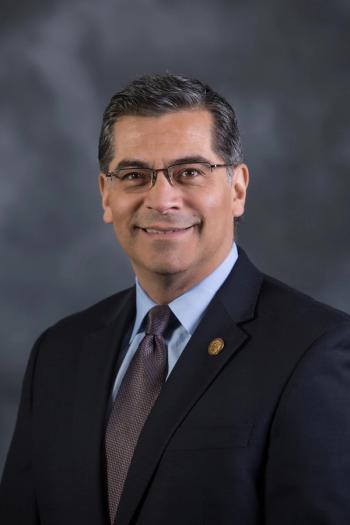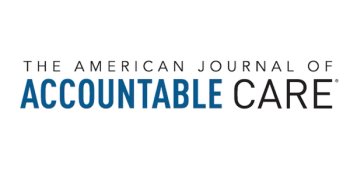
Senators did not approve the 9-nominee commission to reshape the Veteran Affairs health care system; US population is getting older and more diverse; HHS issued guidance to protect patient privacy related to sexual and reproductive care.


Senators did not approve the 9-nominee commission to reshape the Veteran Affairs health care system; US population is getting older and more diverse; HHS issued guidance to protect patient privacy related to sexual and reproductive care.

Medicare Advantage (MA) plans are denying care while overcharging the government, watchdogs said at a Congressional hearing; overturn of Roe v Wade will not change how military treatment facilities provide abortions; the CDC activates the Emergency Operations Center in response to monkeypox.

On this episode of Managed Care Cast, we speak with Georges C. Benjamin, MD, executive director of the American Public Health Association, on the core takeaways of his keynote session at AHIP 2022 on public health policy and other solutions to promote equitable health and well-being.

In response to the Supreme Court last week overturning the landmark 1973 Roe v Wade decision, after previously upholding the constitutional right to an abortion in Planned Parenthood of Southeastern Pennsylvania v Casey, HHS Secretary Xavier Becerra outlined the next steps for the Biden administration.

A possible connection between integrase strand-transfer inhibitor (INSTI) use for HIV and cardiovascular disease (CVD) was investigated in this new study from an international team wanting more knowledge on the drug class’s treatment effects.

Americans with disease and disabilities are disproportionately affected by public policy, with their health outcomes at the complete mercy of lawmakers.

Panelists of an AHIP 2022 session discussed how future policy, infrastructure, and investment strategies in public health will reinforce the efforts already made during the pandemic, with partnerships and engagement key to optimize innovation.

The Senate passed a bipartisan gun law, the first major gun legislation in nearly 30 years, which now goes to the House; HIV cases dropped during the pandemic, perhaps due to lack of testing; researchers say COVID-19 vaccines have saved nearly 20 million lives but could be even more effective.

Reversing a landmark precedent, the Supreme Court voted Friday to overturn 1973’s Roe v Wade decision that guaranteed American women the constitutional right to an abortion, and at least 1 justice suggested that other precedents, such as the right to birth control, be reversed as well.

Patients who received a diagnosis of small cell lung cancer (SCLC) between 2010 and 2016 had a nearly 2% increase in overall survival vs those who received their diagnosis between 2004 and 2010.

Most patients taking a biologic stayed on the therapy, and most saw decreases in exacerbations, a new study has found.

The findings of this study, which used insurance claims data for patients 2 years and older to determine rates of meningococcal A, C, W, Y vaccine uptake, points to the need for more education, the authors said.

The FDA plans to set a maximum nicotine level in cigarettes and tobacco products to reduce addictiveness; a bipartisan bill would place a $35 monthly cap on insulin for patients with private insurance or Medicare; the Supreme Court ruled that an Ohio hospital’s employee health plan did not violate federal law by limiting coverage for outpatient dialysis.

A new report from the Office of Inspector General (OIG) of HHS suggests the accuracy of Medicare’s race and ethnicity data will only diminish over time, unless changes are implemented.

Data from menstrual tracking apps may be used against people in certain states if Roe v Wade is overturned; 100 million Americans, including 41% of adults, have health care debt; Express Scripts reported results of its program to lower diabetes-related costs.

The authors modeled a version of the Patient and Caregiver Support for Serious Illness alternative reimbursement structure for palliative care using data from the Statin Trial.

Imposing a surcharge on unvaccinated employees will require employers to think through legal and policy implications.

Influenza vaccine uptake improved among Medicare Advantage enrollees when influenza vaccination was introduced as a performance metric in Medicare star ratings and accompanying bonus payments.

The FDA determined that the 3-dose Pfizer COVID-19 vaccine worked in children aged 6 months through 4 years; the bipartisan Senate gun deal will focuses on mental health; the pandemic has other viruses acting mysteriously, with children diagnosed with respiratory viruses in May and June.

The results, say the study researchers, offer new insights into patient experiences during spinal muscular atrophy (SMA) clinical trials

GlaxoSmithKline (GSK) aims to have its respiratory syncytial virus (RSV) vaccine reviewed later this year; Northwell Health and Kaiser Permanente among CEOs supporting gun legislation; Infants whose mothers had COVID-19 during their pregnancy had double the risk of delayed speech or motor skills.

The Accountable Care Organization Realizing Equity, Access, and Community Health (ACO REACH) Model provides the next great opportunity in moving a health care payment system toward paying for value and rewarding preventive care and keeping patients healthy.

Medicaid managed care network adequacy standards exhibit significant heterogeneity across regions and specialties, potentially creating large variations in health care access and quality.

On this episode of Managed Care Cast, we speak with the lead author of a paper that discovered that counties that voted majority Republican in the 2020 presidential election had 73 excess deaths per 100,000 people compared with counties that had Democratic majorities.

A study found that patients in the Comprehensive End-Stage Renal Disease (ESRD) Care Model saw a decrease in hospitalizations and readmissions compared with the accountable care organization (ACO) model.

259 Prospect Plains Rd, Bldg H
Cranbury, NJ 08512
© 2025 MJH Life Sciences®
All rights reserved.
